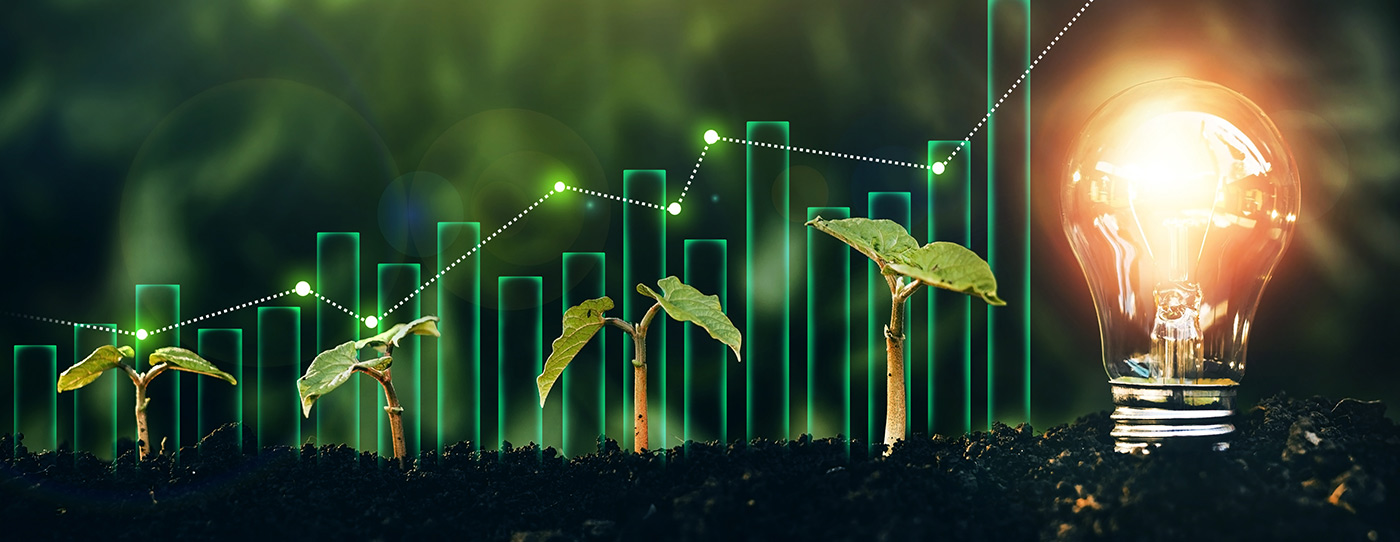
Türkiye’s Big Potential: Green Energy Resources
Investments in green and renewable energy are growing every day as we realize our impact on the environment. Meeting the energy requirements in production from these two sources allows for a significant cost reduction and creates new financial opportunities. So what does “green energy” mean? Is there a difference between renewable energy? Let's take a closer look at Türkiye’s green energy potential.
What is green energy? Is it the same as renewable energy?
According to the Environmental Protection Agency (EPA), green energy represents the renewable energy sources and technologies that deliver the most extensive environmental benefits. So we can define this concept as electricity produced from solar, wind, geothermal, biogas, biomass, and low-impact small hydroelectric sources. Green energy, which effectively reduces carbon footprint and targets net zero emissions, is wary of applications that may harm the environment, such as mining, deforestation, or drilling. This means that some natural energy sources must be appropriately regulated before they can be considered green.
On the other hand, renewable energy refers to rapidly renewing and inexhaustible energy sources. Such energy sources include the sun, wind, water, organic plant and waste materials (biomass), and the earth's heat (geothermal). While it appears to be the same as green energy sources, it is worth noting that particular renewable energy technologies can have environmental effects. That's where the difference occurs. For example, hydroelectric resources that produce electricity from hydropower can have ecological impacts on issues such as fisheries and land use. Of course, these effects can be minimized if hydropower plants are built with measures that prioritize the environment at the planning stage. Take biomass, where natural wood waste, sawdust, and organic agricultural wastes are burned to produce energy: Although it is created from natural resources, burning this material can release greenhouse gases into the atmosphere, so it must be carefully managed to be considered a green energy source.
Green energy, which effectively reduces carbon footprint and targets net zero emissions, is wary of applications that may harm the environment, such as mining, deforestation, or drilling. This means that some natural energy sources must be appropriately regulated before they can be considered green.
What is Türkiye's green energy potential?
According to the “2021 Turkish Energy Policy Review” published by the International Energy Agency (IEA), Türkiye has witnessed impressive growth in renewable resources (mainly solar, wind, and geothermal) over the past decade, thanks to a good supply of resources, a substantial increase in energy demand and supporting government policies. In particular, renewable electricity production has nearly tripled over the past decade, and its share of total electricity production reached 44% in 2019. Türkiye has already surpassed the 38.8% renewable electricity generation target set in the Eleventh Development Plan. (2019-2023). According to the report, Türkiye aims to expand its renewable energy sources, and solar and wind power plants will be commissioned in the country by 2027, each with 10 gigawatts (GW). The report also indicates that under the Renewable Energy Support Mechanism (YEKDEM), Türkiye offers tariff guarantees for renewable energy power plants, including wind, solar, biomass, hydro, and geothermal. According to the report, Türkiye has much greater potential, considering its resources, and could intensify its efforts to increase its share in green and renewable energy.
SOCAR Türkiye and green energy investments
Under our sustainability strategy, we plan to reduce our environmental impact by using green energy that respects the universe. In this context, with the green energy sales certified with the International Renewable Energy Certificate (I-REC), we sold 10% of our current electricity end-consumer portfolio, 231 million kilowatt-hours of green energy in 2021. We have also added international carbon certification services like Gold Standard and Verified Carbon Standard (VCS) to our portfolio.